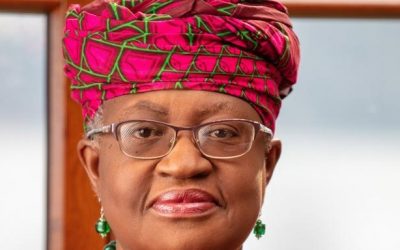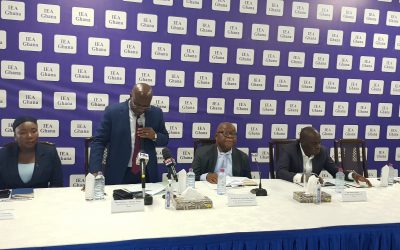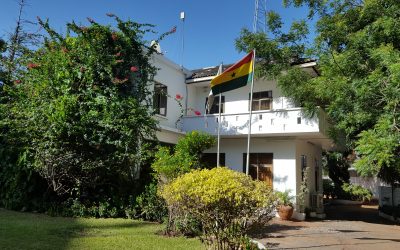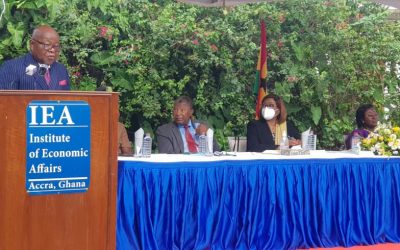A budget can deliver stabilisation, growth or social relief objectives. The relative emphasis on these objectives in any budget will vary depending on the prevailing circumstances. In practice, stabilisation, on the one hand, which requires contractionary policy, tends to conflict with growth and social relief, on the other hand, which require expansionary policy. The 2020 budget grapples with these contending objectives and walks a tight rope between them. On the whole, the budget is cautious but not sufficiently ambitious. After three years of policy consolidation by the government, fiscal impetus was needed to stimulate growth while providing some social relief. However, by committing to stay within the fiscal deficit rule mandated by the Fiscal Responsibility Act (FRA), the only way government could deliver the needed fiscal impetus was to have a strong resource mobilisation plan. However, the revenue effort is less ambitious, as are the expenditure and growth projections.
Overall policy stance—sub-optimal
The overall fiscal stance shows a deficit of 4.7% for 2020, the same as projected for 2019. And over the medium-term, the deficit is projected to decline progressively to 3% by 2023, which is the ECOWAS convergence target. The question, however, is whether the policy stance for 2020 and the medium term is optimal. The rather tepid economic growth projected for the period is the clearest evidence of the sub-optimal fiscal policy stance.
This outcome is precisely because the fiscal stance is not backed by a strong revenue mobilisation drive that would have supported an equally strong expenditure drive—and ultimately stronger growth. The consequence of the unambitious policy stance is to settle the economy in an unacceptably sub-optimal, low-equilibrium state.
Resource mobilisation—a tepid, unambitious effort
The revenue projection for 2020 appears optimistic in relation to the past record and growth of nominal GDP, to which major tax items are related. Over-optimistic revenue projection seems to have characterised the budget in the past years. But while the revenue projection is optimistic, ironically, it is not ambitious.
In terms of GDP, domestic revenue is projected at 16.5% and tax revenue at 12.4%. These ratios compare unfavourably with those of about 30% and 25% respectively for middle-income countries.
Further, the medium-term projections do not show any improvement, with domestic revenue/GDP averaging 15.9% for 2021-23 and tax/GDP averaging 12.9%. The low revenue levels have serious implications for expenditure and economic growth.
We need to be ambitious in resource mobilisation in Ghana, otherwise the economy stands to settle in a suboptimal, low equilibrium state. Revenue-enhancing measures announced by the Finance Minister, Ken Ofori-Atta, focused on supporting GRA reforms largely targeted at tax administration. However, the planned reforms do not reflect significantly better revenue outcomes.
The Minister should have taken bolder steps to mobilise revenue, including by: a) reinforcing enforcement; b) reducing exemptions; and c) effectively assessing and collecting property taxes; d) checking tax losses through trade mis-invoicing, transfer pricing, other illicit financial flows, fraud and corruption; and e) imposing additional taxes on the booming sectors of the economy—mining, telecommunications and banking.
Resource utilisation—unhealthily skewed
Expenditure is constrained by the unambitious projections on revenue so as to allow the deficit to be contained within the FRA ceiling. Further, expenditure is skewed in favour of recurrent spending, which amounts to 16.8% of GDP in 2020, while capital spending is squeezed, amounting to 3.9% of GDP.
Even over the medium-term, the skewness in expenditure continues, a situation that is inimical to long-term growth. Expenditure management needs to be reappraised, including through: a) effective control and rationalisation to promote efficiency and economic stability; and b) rebalancing by reining in recurrent expenditure and scaling up capital expenditure/infrastructure to foster long-term growth.
Public debt—a slippery road to insolvency
The public debt (including financial sector bailout and energy payments) is reported at GH¢ 208.6 billion or 60.5% of GDP at end-September 2019. The debt/GDP ratio just crosses the 60% rough sustainability threshold for lower middle-income countries (LMICs).
ECOWAS has a higher convergence ceiling of 70%, which is more applicable to mature MICs. The projected decline in the deficit over the medium-term should reduce the pace of borrowing and additions to the debt.
However, the immediate burden of debt may not be the stock but rather the debt service-to-revenue ratio. In 2019, the debt service/tax revenue ratio was 46%. Using 46% of your tax revenue to service your debt alone is not a healthy situation to be in. It is, therefore, critical to rein in the budget deficit and borrowing to avoid plunging the economy into insolvency.
Social initiatives—well-intentioned but costly
Several social initiatives are being continued in 2020 and over the medium term. These include: a) Free Senior High School; b) Free Nursing and Teacher Trainee Allowances; c) NABCO (Nation Builders Corps – a government initiative to address graduate unemployment); and d) LEAP (Livelihood Empowerment Against Poverty – a cash transfer programme).
The problem, however, is that these initiatives consume a large amount of budgetary resources, leaving insufficient funds for other important outlays, especially on physical capital or infrastructure.
Reappraising some of the initiatives, including plans to consolidate existing and on-going ones, would foster cost-effectiveness and delivery of better outcomes.
In conclusion, the 2020 budget and medium-term policy framework are cautious but not sufficiently ambitious. It is commendable that the FRA deficit ceiling is respected, but this comes at a price of constrained (capital) expenditure and economic growth.
Stronger efforts should have been made to raise more revenue to support more ambitious expenditure and growth targets.
Dr. John K. Kwakye is Director of Research at the Institute of Economic Affairs (IEA), Ghana. The post is culled from the Institute’s 19 November 2019 press briefing on the 2020 Budget and Economic Policy, which Ghana’s Finance Minister presented to Parliament on 13 November 2019. The press briefing, organised annually by the IEA, communicates the Institute’s views on the Budget to the general public via the media.






Great post.